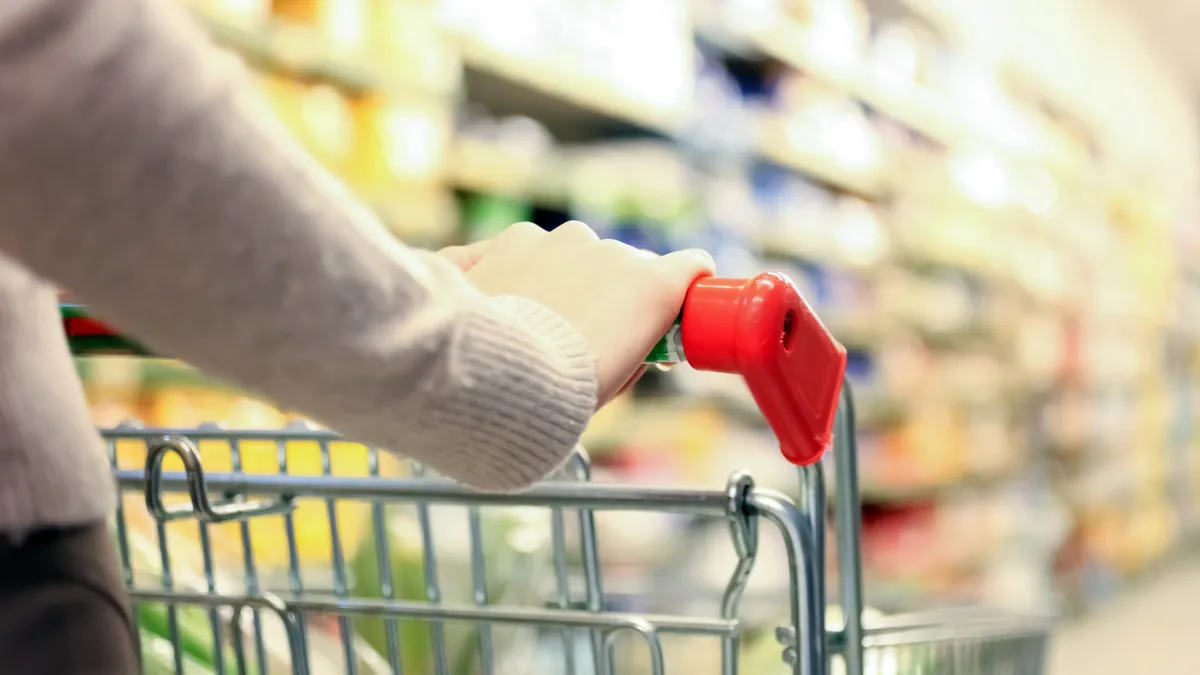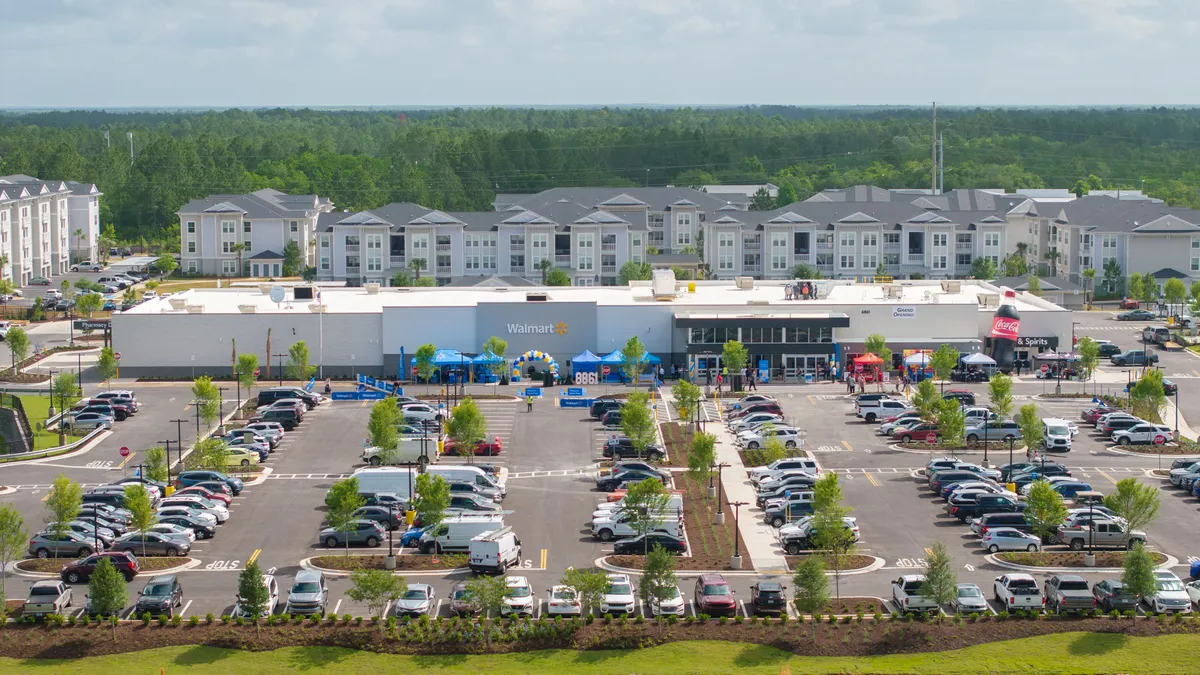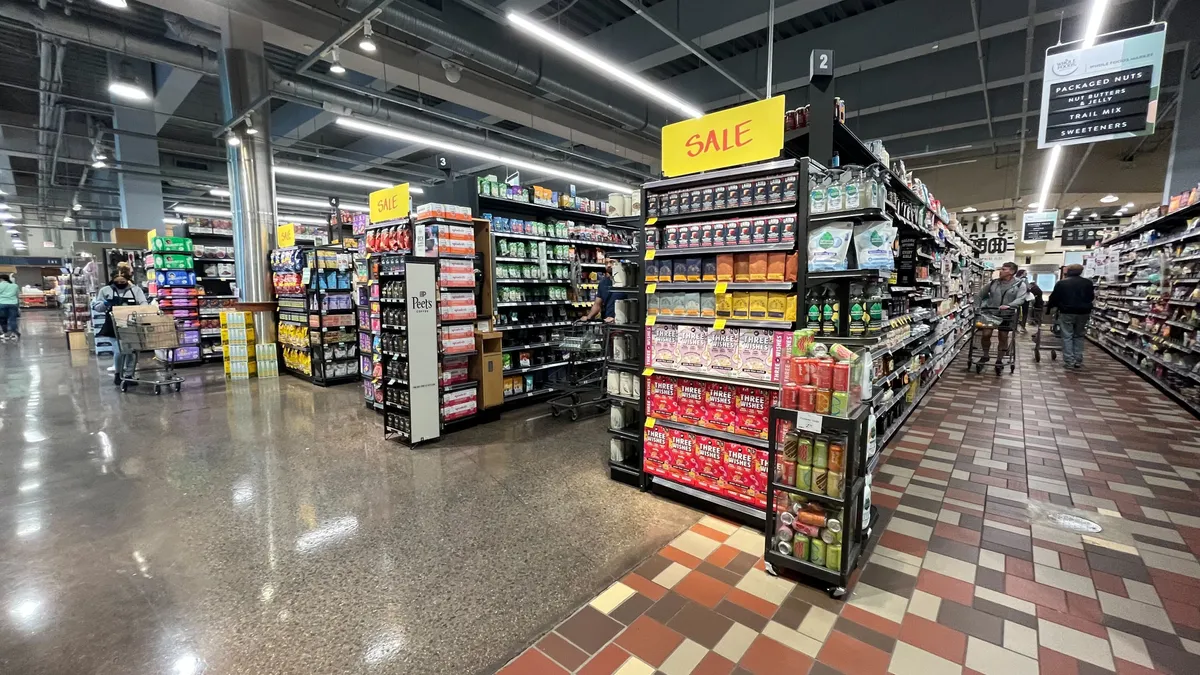Dive Brief:
- In an interview with Bloomberg News, Brett Barakett, chairman and CEO of Tremblan Capital Group, said that online retailers like Amazon and U.K.-based Ocado consider grocery retail the “holy grail,” and have the capabilities to make swift inroads into the market.
- Large warehouses and nimble delivery systems offer advantages for these providers, Barakett said. But where they really distinguish themselves is in their ability to mine and use customer data.
- Barakett noted Wal-Mart’s growth in click-and-collect, but said he believes Amazon offers a more effective service. “If I were Wal-Mart, I’d be really scared about what Amazon Fresh is trying to do,” he said.
Dive Insight:
It's no surprise that Amazon and Ocado are growing threats in the grocery industry, but retailers may underestimate just how much danger these e-tailers pose to their success.
Simply put, both businesses have the resources to expand very quickly, deliver a wider array of products more effectively than traditional retailers and learn as they go through unparalleled data mining. Amazon has quickly advanced with its Prime Now service, and now offers one- and two-hour delivery in 30 cities. Ocado, meanwhile, is a $2 billion company with, as Barakett described, very sophisticated fresh capabilities.
As Barakett notes, e-retailers consider grocery “the holy grail” for a few key reasons. It’s the largest segment of retail, for one. It’s also stable, predictable, and pretty inefficient by the standards of today’s consumers.
“We all spend an hour or two a week buying the same stuff we buy every week,” Barakett told Bloomberg. “It’s ripe for takeoever.”
Brick-and-mortar retailers aren’t taking any of this sitting down, of course. They’re partnering with third-party e-commerce services like Instacart, Postmates, Google Express and, yes, even Amazon Prime Now. They’re also, as Barakett pointed out, investing in click-and-collect services, which allow shoppers to order goods online then pick them up in-store. Wal-Mart will offer click and collect at 2,000 stores by the end of this year, while Kroger is offering curbside pickup of goods in many of its stores.
On the plus side, retailers are learning quickly. On the down side, they’re hampered by low innovation investment. By the time they optimize e-commerce for their customers, the likes of Amazon and Ocado may already be firmly entrenched in the space.
“Amazon spends more on innovation than the twenty largest supermarket companies in America combined," Jerry Sheldon, retail analyst with IHL Group, told Food Dive. "If retailers don’t start investing at a greater level of innovation, they’re going to become lunch served for Amazon.”










